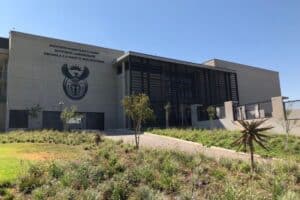Quintile one to three schools and no-fee schools, with quintiles four and five receiving funding from governments to supplement school fees.

Gauteng schools will face greater financial pressure in 2026 after hefty cuts to government subsidies.
Quintile five schools, fee-paying public schools, were informed earlier this month that subsidies would be reduced from R879 per learner to R315 per learner.
Those opposing this 65% funding reduction lambasted the timing of the announcement, as 2026 budgets were already in place at most schools, forcing a scramble to put in place contingencies.
Shortfall in subsidies
The Gauteng Department of Education (GDE) informed schools of the changes early in October in a letter dated 30 September.
The end of September was the deadline for funding changes, but the Federation of Governing Bodies of South African Schools (Fedsas) insists the announcement was unprocedural because the letters were received after the deadline.
“The decision is invalid since the GDE did not adhere to the deadline,” stated Fedsas Jaco Deacon.
“We will act in the interests of our members in instances of procedural non-compliance, irrespective of whether it is the result of administrative incompetence or blatant contempt of rules and regulations.”
Despite a R3.1 billion budget increase from the previous financial year, the GDE stated it was experiencing a subsidy shortfall.
“To contain the pressure, the GDE has revised its decision to fund quintile five schools using the adequacy amount of quintile four and adhere to the Department of Basic Education’s published adequacy amount,” stated GDE spokesperson Steve Mabona.
Gauteng’s quintile five schools had been on the national subsidy rate for lower quintile schools before the recent decision.
Possible pressure on parents
The DA agrees with Fedsas that the GDE acted unlawfully in the timing of the funding reduction announcement.
“MEC Matome Chiloane’s late communication has caused uncertainty and financial pressure for parents, who now face the possibility of hiked fees ensuing from belatedly announced funding reductions,” said DA Gauteng Shadow MEC for Education Sergio dos Santos.
The DA insists that the decision should be reversed or subjected to judicial review to protect the stability of schools.
“This action must be to ensure that MEC Chiloane is held accountable and that the rights of learners in these schools are fully protected,” stated Dos Santos.
The Freedom Front Plus (FF+) raised the alarm earlier in October, highlighting that all Afrikaans schools were among the 750 affected schools.
“In a province where education is already under pressure, it is unacceptable that a specific language community has to bear the greatest burden, without prior consultation or clear justification,” stated FF+’s Advocate Anton Alberts.
Quintile five schools not ‘wealthier’
Dos Santos and Alberts both stressed the subsidy cut could also affect departmental teaching posts, something the GDE brushed aside.
“It must be noted that the GDE protects the overall teaching posts, and as such, no teacher post has been cut. The status quo remains,” stated Mabona.
Fedsas Gauteng Manager Deon Lerm said that quintile five schools should not be perceived as wealthier, as the number of fee exemption requests was increasing year on year.
Additionally, the number of defaulting parents was rising, with Lerm citing a quintile five school where only 25% of parents paid their school fees.
He explained that a loss of funds would be felt most in teaching resources, gradually affecting children.
“The best interests of learners remain their priority, which means that expenditure on aspects such as staff development is cut. Ultimately this affects quality education,” Lerm said.






